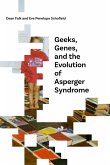Racial and ethnic categories have appeared in recent scientific work in novel ways and in relation to a variety of disciplines: medicine, forensics, population genetics and also developments in popular genealogy. Once again, biology is foregrounded in the discussion of human identity. Of particular importance is the preoccupation with origins and personal discovery and the increasing use of racial and ethnic categories in social policy. This new genetic knowledge, expressed in technology and practice, has the potential to disrupt how race and ethnicity are debated, managed and lived. As such, this volume investigates the ways in which existing social categories are both maintained and transformed at the intersection of the natural (sciences) and the cultural (politics). The contributors include medical researchers, anthropologists, historians of science and sociologists of race relations; together, they explore the new and challenging landscape where biology becomes the stuff of identity.
Dieser Download kann aus rechtlichen Gründen nur mit Rechnungsadresse in A, D ausgeliefert werden.









